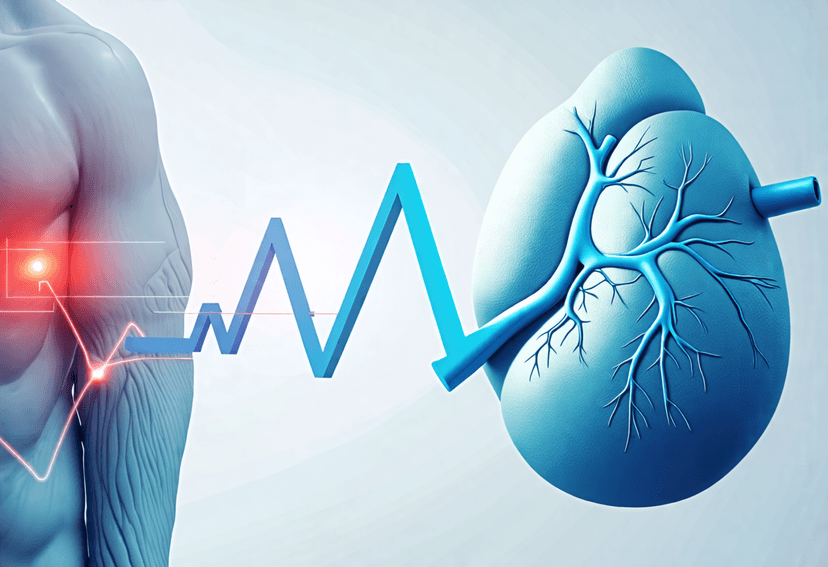
Understanding Testicular Cancer
10 Oct, 2024
 Healthtrip
HealthtripWhen it comes to our health, there are certain things we often take for granted. We assume that our bodies will always function as they should, and that we'll always be able to bounce back from any illness or injury. But the truth is, life is full of uncertainties, and sometimes we're faced with unexpected challenges that can be scary and overwhelming. One such challenge is testicular cancer, a disease that affects thousands of men every year. While it's a serious condition, the good news is that it's often treatable, especially when caught early. In this article, we'll delve into the world of testicular cancer, exploring its causes, symptoms, diagnosis, treatment options, and most importantly, the importance of early detection.
What is Testicular Cancer?
Testicular cancer occurs when abnormal cells in the testicles begin to grow and multiply uncontrollably, forming a tumor. The testicles, also known as testes, are the male reproductive organs that produce sperm and testosterone. Cancer can develop in one or both testicles, and it's more common in men between the ages of 20 and 40. The exact cause of testicular cancer is still unknown, but there are several factors that can increase a man's risk, including family history, undescended testicles, and Klinefelter syndrome.
Most popular procedures in India
Risk Factors and Prevention
While there's no surefire way to prevent testicular cancer, there are some steps you can take to reduce your risk. One of the most important things is to perform regular self-examinations, which can help you detect any abnormalities early on. It's also essential to maintain a healthy lifestyle, including a balanced diet, regular exercise, and stress management. Additionally, if you have a family history of testicular cancer, you may want to consider speaking with your doctor about your risk factors and any additional steps you can take to reduce your chances of developing the disease.
Signs and Symptoms
The symptoms of testicular cancer can be subtle, and they often develop gradually over time. In many cases, the disease is asymptomatic in its early stages, which is why regular self-examinations are so crucial. Some common signs and symptoms of testicular cancer include a lump or swelling in the testicle, pain or discomfort in the testicle or scrotum, and a feeling of heaviness in the scrotum. In some cases, testicular cancer can also cause symptoms such as fatigue, weight loss, and nausea.
Wellness Treatments
Give yourself the time to relax
Lowest Prices Guaranteed!

Lowest Prices Guaranteed!
Diagnosis and Staging
If you suspect you may have testicular cancer, it's essential to see a doctor right away. The diagnosis process typically involves a physical exam, during which your doctor will check for any abnormalities in the testicles. Your doctor may also order imaging tests, such as an ultrasound or CT scan, to confirm the presence of a tumor. Once the diagnosis is confirmed, the next step is to stage the cancer, which involves determining the extent of the disease. The most common staging system for testicular cancer is the TNM system, which takes into account the size of the tumor, the presence of cancer in the lymph nodes, and whether the cancer has spread to other parts of the body.
Treatment Options
The treatment for testicular cancer usually involves a combination of surgery, chemotherapy, and radiation therapy. The type of treatment you receive will depend on the stage and type of cancer, as well as your overall health. Surgery is often the first step, during which the affected testicle is removed. In some cases, the lymph nodes in the abdomen may also need to be removed. After surgery, you may need to undergo chemotherapy or radiation therapy to kill any remaining cancer cells. In some cases, a combination of these treatments may be necessary.
Survival Rates and Prognosis
The prognosis for testicular cancer is generally good, especially when the disease is caught early. According to the American Cancer Society, the five-year survival rate for men with testicular cancer is around 95%. However, the survival rate decreases significantly if the cancer has spread to other parts of the body. This is why early detection is so crucial – it can literally be a matter of life and death. With the right treatment and support, many men are able to beat testicular cancer and go on to lead healthy, fulfilling lives.
Testicular cancer is a serious disease, but it's not a death sentence. By understanding the causes, symptoms, diagnosis, and treatment options, you can take control of your health and reduce your risk of developing this disease. Remember, early detection is key, so don't hesitate to see a doctor if you notice any abnormalities in your testicles. With the right knowledge and support, you can overcome testicular cancer and live a long, healthy life.
Related Blogs

Prostate Enlargement: Causes and Treatment
Learn about the causes, symptoms, and treatment options for prostate

The Importance of Prostate Screening
Why regular prostate screening is crucial for men's health

The Role of Sleep in Men's Health
Understand the role of sleep in men's health and wellness

The Importance of Self-Care for Men
Understand the importance of self-care for men's health and wellness

The Importance of Prostate Health
Understand the importance of prostate health and how to maintain

Men's Health and Wellness Trends
Stay up-to-date on the latest men's health and wellness trends










